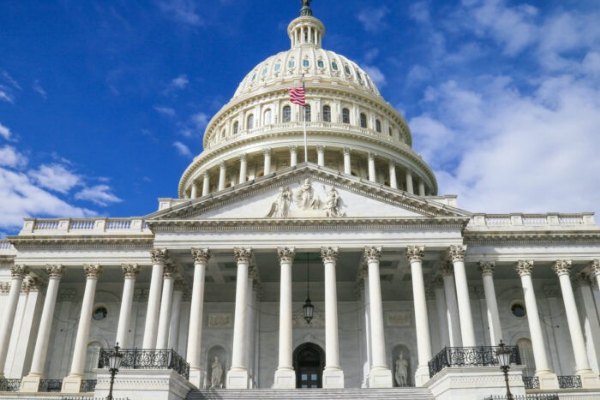
The Biden administration recently announced it will increase support to hospitals, expand access to free testing, and ramp up vaccination capacity in response to the rapidly spreading COVID-19 omicron variant.
Texas Medical Association leadership says that support can’t come fast enough.
President Joe Biden’s plan aims to “mitigate the impact unvaccinated individuals have on our health care system, while increasing free testing and getting more shots in arms to keep people safe and our schools and economies open,” according to a Dec. 21 White House press release. It includes, among other actions:
- Deploying an additional 1,000 military physicians, nurses, paramedics, and other medical personnel to hospitals across the U.S. during January and February;
- Directing the Federal Emergency Management Agency to activate additional hospital capacity and to deploy emergency medical teams and ambulances that can transport patients when hospitals fill up;
- Expediting the delivery of ventilators to states in need;
- Standing up new federal testing sites and pop-up vaccination clinics; and
- Delivering half a billion at-home rapid tests, for free, starting this month.
More than 98% of new COVID-19 cases in Texas and surrounding states are now caused by omicron, according to the Centers for Disease Control and Prevention (CDC). Since the World Health Organization classified omicron as a variant of concern on Nov. 27, 2021, the seven-day average number of new confirmed COVID-19 cases in Texas has skyrocketed from around 2,000 to more than 30,000, according to the Texas Department of State Health Services (DSHS).
Amarillo family physician Rodney Young, MD, supports the administration’s plan, which he says is intended to help hospitals prepare for increased demand due to omicron.
“At the moment, the big problem, as far as our health care system [is concerned], is staffing,” said Dr. Young, chair of TMA’s Council on Socioeconomics. “And it’s likely to worsen quite a bit in the next couple of weeks.”
Texas is among the states in need of such help. On Dec. 31, 2021, Gov. Greg Abbott announced a series of requests from the Texas Department of Emergency Management and DSHS, including:
- Federal support for testing sites in six counties – Bexar, Cameron, Dallas, Harris, Hidalgo, and Tarrant;
- Additional supplies of sotrovimab, the only monoclonal antibody treatment effective against omicron, and other therapeutics that help reduce hospitalizations; and
- Medical personnel for urban hospitals.
The challenge, Dr. Young says, will be for the federal government to get these resources quickly to the states and hospitals that need them, before they go from being burdened by COVID-19 to being completely overwhelmed. In the Texas Panhandle, where he practices, around 20% of hospital beds are being used by patients with COVID-19, “a diagnosis that didn’t exist a couple of years ago, when we needed the same number of beds to treat existing conditions,” he said.
In the meantime, the Biden administration and DSHS continue to urge people to get vaccinated as soon as possible, to get a booster shot when eligible, and to rely on proven tools – including handwashing, social distancing, masking, and improved ventilation – amid the current surge.
“The president has been on point about the critical nature of vaccination,” Dr. Young said. “But we’ve hit a wall on vaccine acceptance – and hit it much too soon.”
Nationally, around 66% of people 5 years and older are fully vaccinated, compared with around 61% of Texans 5 years and older, according to CDC and DSHS.
Emma Freer
Associate Editor
(512) 370-1383